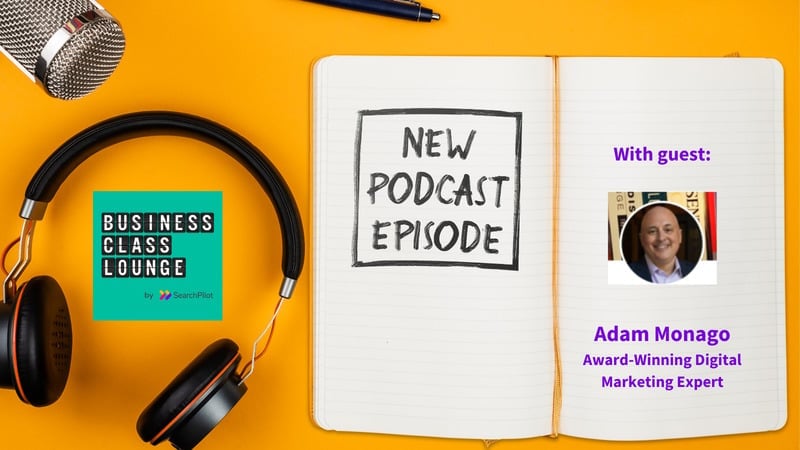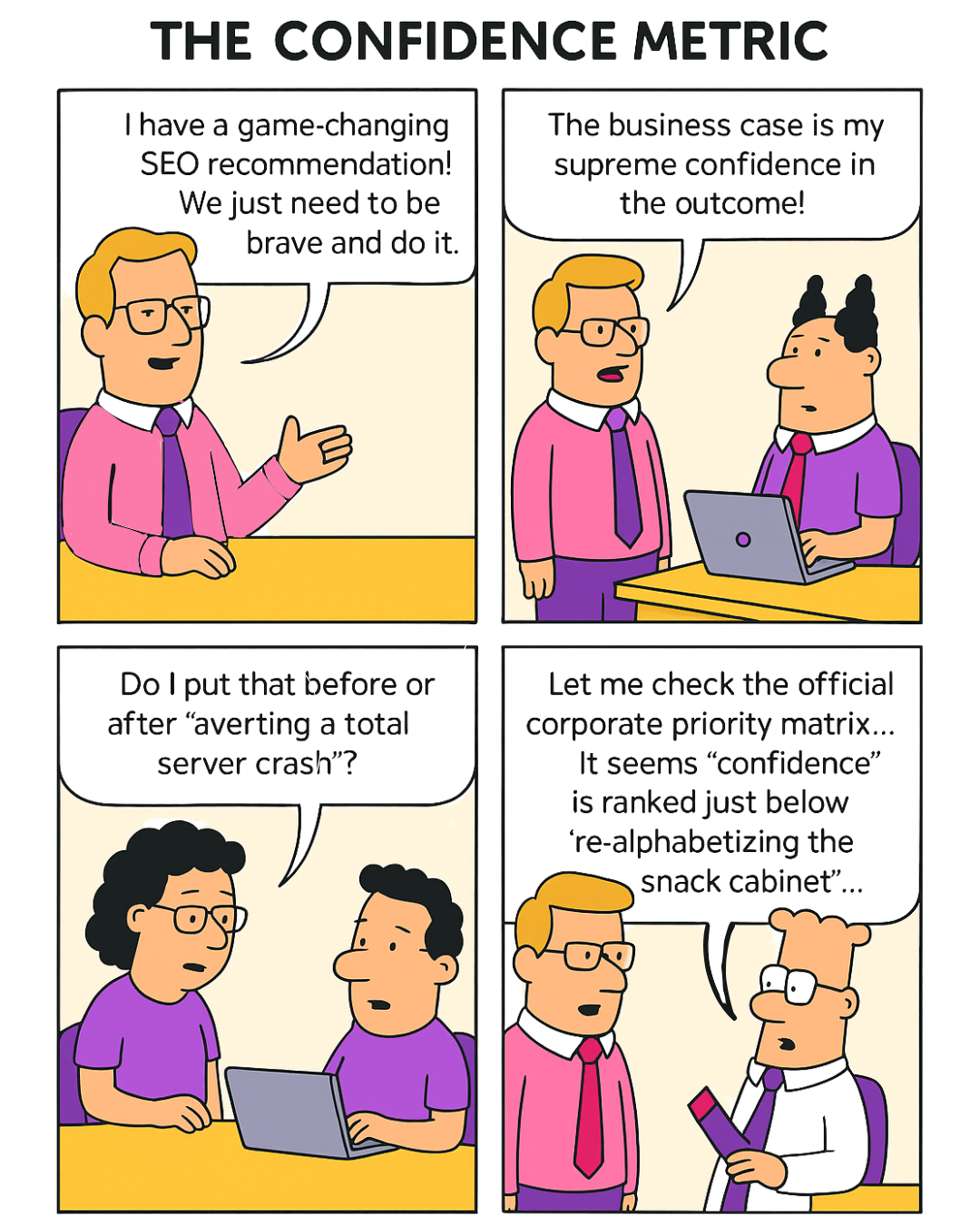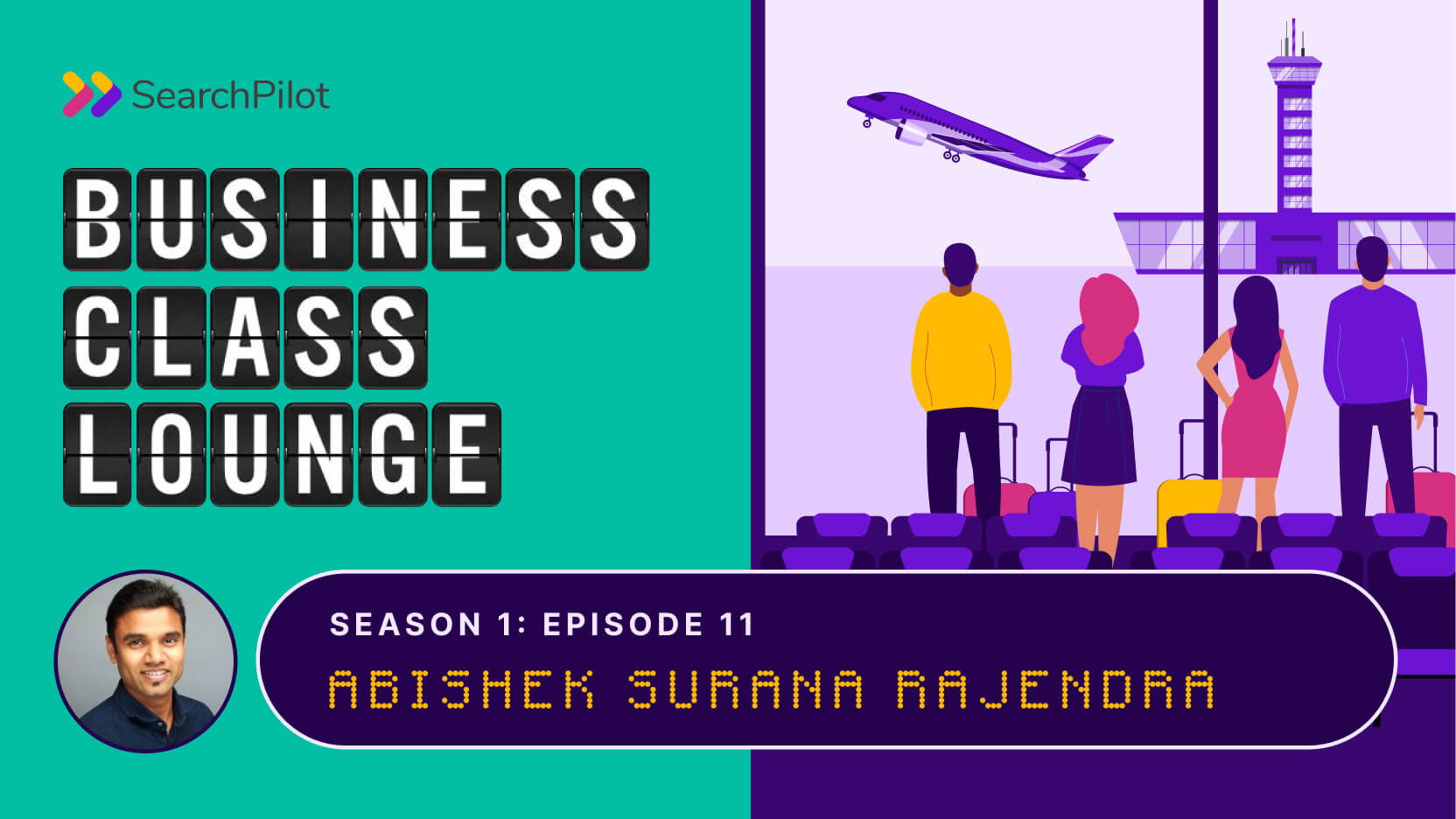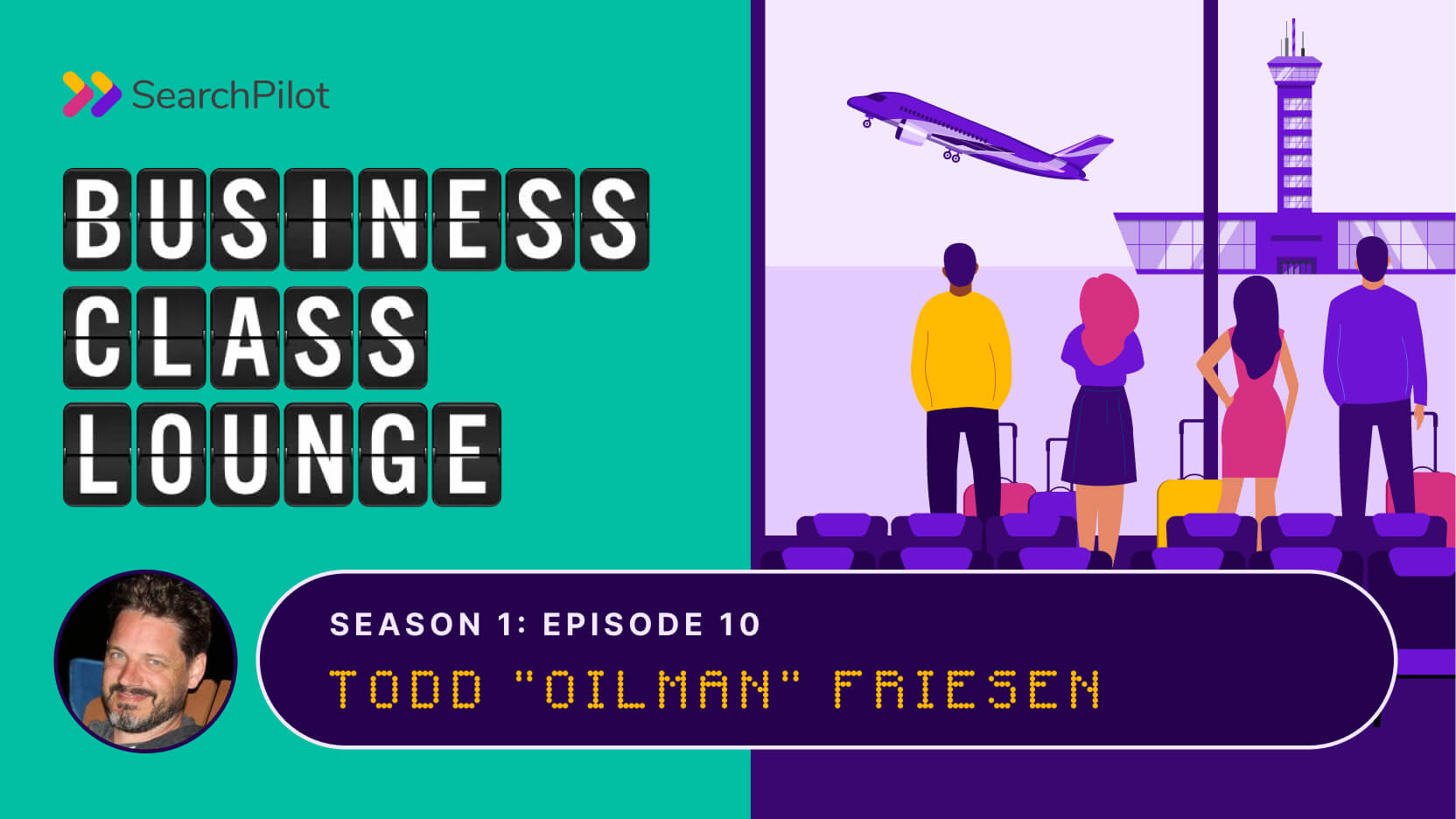My guest for Episode 7 is Adam Monago. Adam and I met when he was a VP at ThoughtWorks and worked with my agency, Distilled. Since then, he’s made a couple of moves and is now VP of Global Marketing and Digital at Adec Innovations. Adam is responsible for some of the smartest B2B campaigns I’ve seen, and I couldn’t wait to quiz him about how he works.
In this episode, Adam and I cover what he’s been up to since ThoughtWorks, how he leads the challenges and changes in the organizations he’s been in, how he integrates SEO into the overall digital marketing strategy, how that folds up to the business mission, and how budgets are approved. We also get away from business talk to delve into recommendations for learning and inspiration. Here’s a text snippet from this episode where Adam shares some of those, including a revelation on Babylon. As always, you can tune in to the full episode from the player below:
Do you have any stories either from current or previous roles of great projects?
Adam Monago (AM): There’s definitely a number of projects I’m super proud of. One of the things that still to this day I look back at is: during my time at ThoughtWorks, we took what was called the Technology Radar which was their flagship written report from all the global tech leads. This started in 2010 when the team would get into a room for a week and they’d plot all the technologies that they thought were bleeding edge or tired and that should go away, or things that needed better practices around them. What we learned from it was that when that report would come out, for three days our website went gangbusters. People coming out of the woodwork, hundreds of thousands of people would come to download this report and then we’d never see those people again.
So we have a piece of technology-generated content that is near and dear to the hearts of so many of our employees. Let’s look at how we could make the radar more interactive. It really became a little bit of a pet project for us. At first, we had a couple of people, adding some things on the front end, making an interactive kind of quadrant. Also on the nerdy data side of it, some folks thought we could make a glossary - we know that’s SEO gold.
We have tons of content that comes out every year that’s a written report, but then we could interview people on the different technologies. Then that becomes a library of videos.
So it started to have a life of its own and it was like,
“Wow, this is not just a one-time thing. This is an evergreen campaign, literally a piece of content that will never get stale.”
We felt that this is the thing that’s going to keep on giving, it’s going to keep drawing traffic in. We only have to really prove a couple of things: One is if we can even convert a fraction of those people who come over those three days to start coming more regularly. That’s actually a pretty big win. Two: can we start connecting that up to some bigger mission.
With six-monthly release, we would add more features. And I’m happy to say that it kept chugging even after I moved on from the company in 2016. It’s still going and they still keep adding more and it’s now by far the richest thing on their site. Now there are tools for making your own, executives are using them and other companies are linking back and saying, “Oh, we’re using the radar approach from these guys.”
I couldn’t have been more proud about that because even though we didn’t create the report, we helped facilitate just taking it to another level, which just became a real business growth tool.
I know how curious you are and it comes across through the passion that you’ve had for learning things throughout your career. Where do you get that combination of learning for inspiration and for actual skills?
AM: Everybody has their own path. My path was very technical at the beginning, and then I made my way to marketing after a software career, and so I always felt a little bit of imposter syndrome in the marketing space back then.
Because I didn’t have as much of that early on, I felt like I was doing some catching up, just because work is so full on all the time. I probably turned to less formal marketing channels than I used to. I do have a couple of newsletters that I subscribe to. I love Kevin Indig’s Growth Memo newsletter. I still read Ann Handley’s newsletter for content writers because it’s just fun and smart. I still read some stuff from the realm of product . A guy named John Cutler runs a newsletter, A Beautiful Mess, which is just awesome. I feel like there’s a lot of stuff that he says where I’m like, “Oh, I’ve been chewing on this for a long time. I’m so psyched somebody’s facilitating the conversation.” Also a little bit of entrepreneur stuff, from people who built good businesses on really sound content and design practices.
I’m a big history nerd, so in addition to reading a lot of nonfiction, I’ll listen to stuff like the ‘The Rest is History’ podcast, which is all about the small details. I think in any domain you’re working in. You have to understand a little bit about the broad strokes. Then what makes it really awesome for the community you’re in is going down to the small details that make it really stick with your audience.
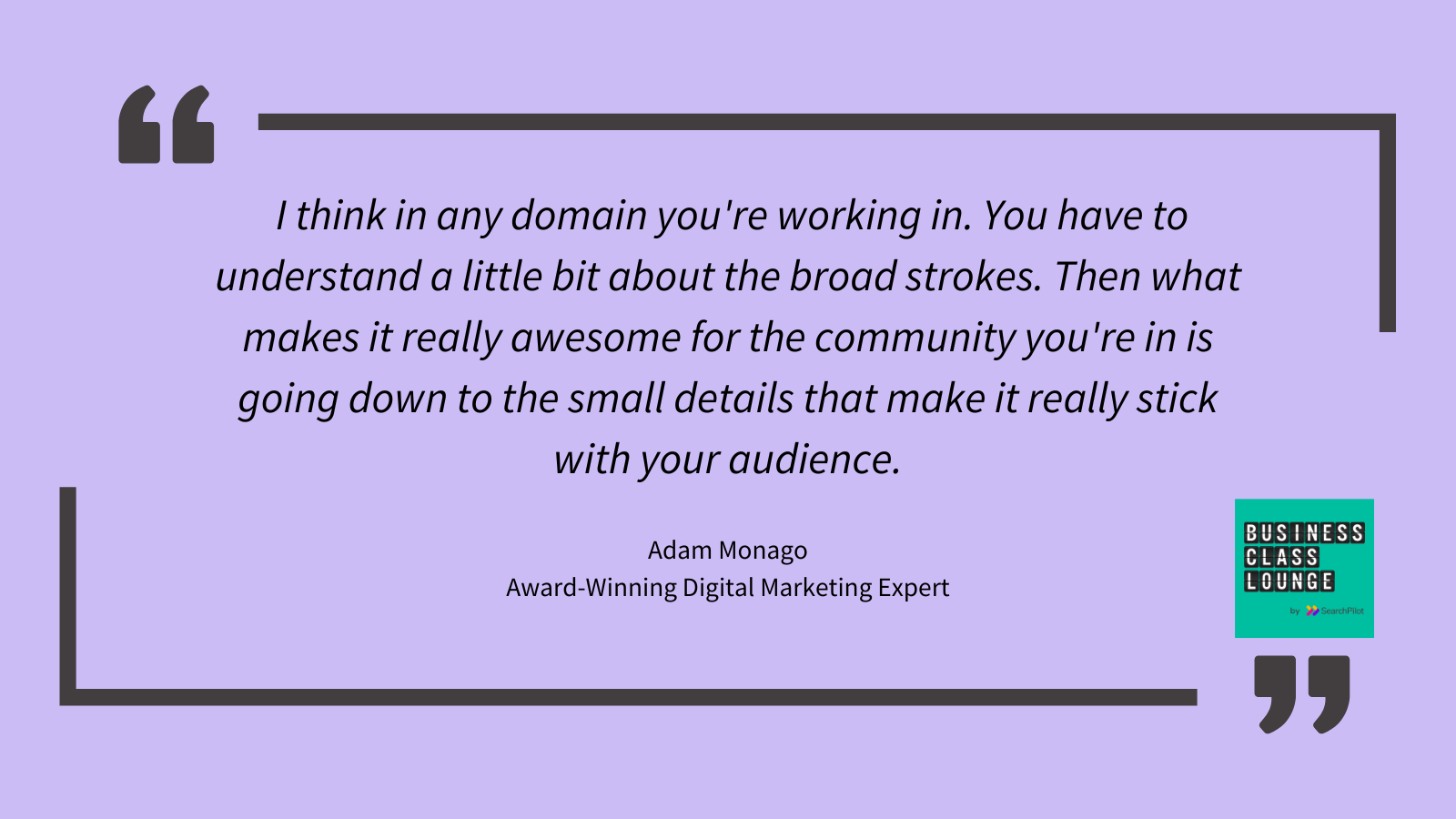
What are some memorable history episodes or podcasts that people should check out?
AM: There’s some cool friendships between some of the folks who run some of the history podcast shows. The gentleman who runs ‘The Rest is History’ podcast happened to be good friends with Dan Carlin, who runs ‘Hardcore History’.
At one point, ‘The Rest is History’ show hosts did a whole interconnecting series of episodes on Babylon. Most of what we know about Babylon is probably informed by one of the biblical texts. But in the podcast you learn that it was the torch bearer for the legacy of Rome arguably. Super interesting stuff and I never would’ve known all of that without having spent time with it. But what they really do is they spend time going through the different sources, comparing what is legend with what is known. I think those kinds of skills, being analytical, is definitely what you can take back and apply to other parts of life. There’s so much we deal with today that we take at face value. It’s really about “Let’s go back. What did the data really say? Is this plausible? Is this not plausible? What do we really think here?” And I think that is such a great critical thinking ability. It’s a ton of fun from that angle.
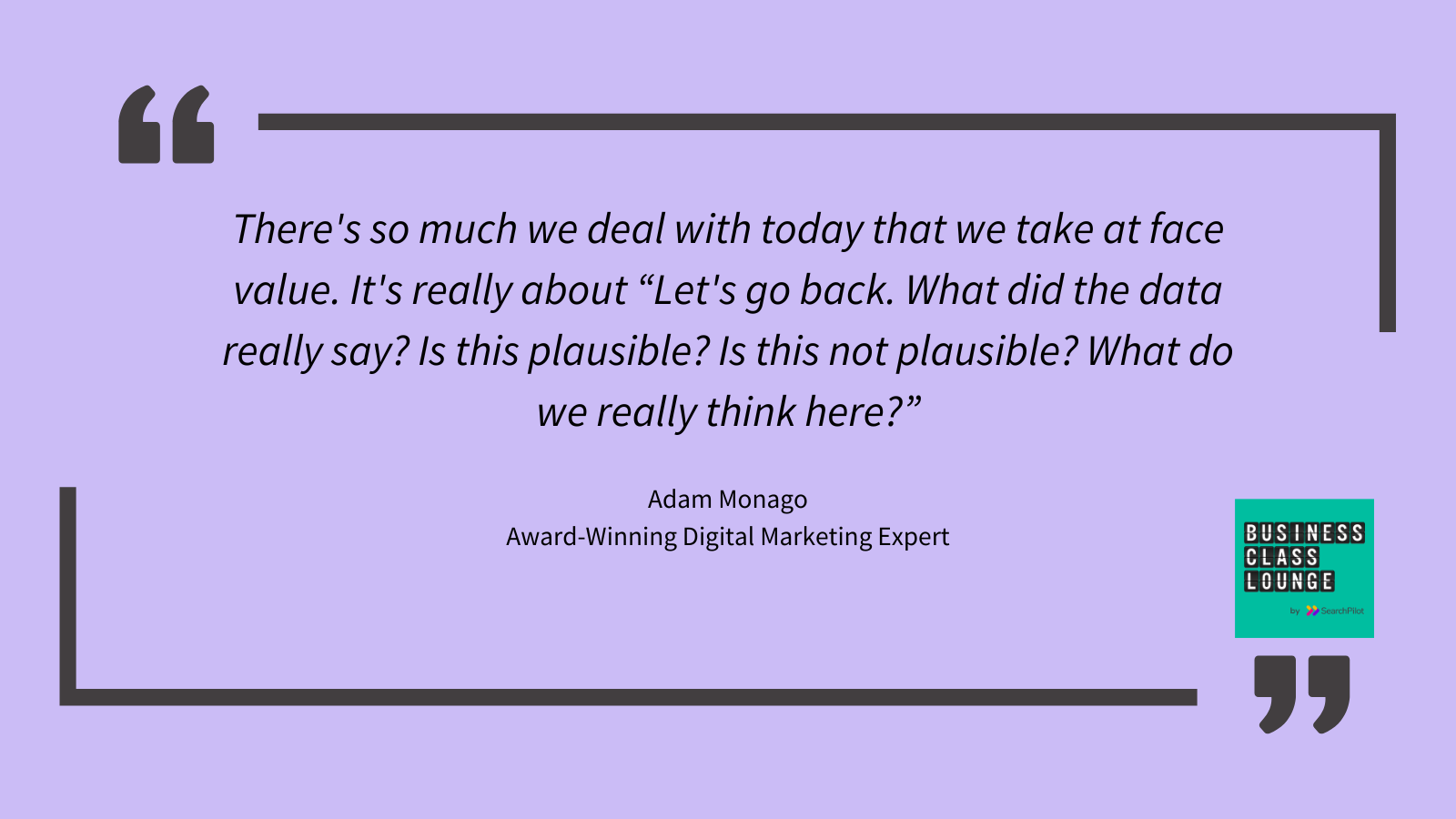
Want more?
You can continue listening to this discussion and other great conversations from wherever you get your podcasts: Apple, Spotify, Amazon, Google, or YouTube or you can catch them all directly from the feed here.
I’d love to hear your thoughts on this seventh episode, email me at podcast@searchpilot.com or send me a message on LinkedIn. You can also find Adam on LinkedIn and check out his professional work at Adec Innovations and his volunteer work as a board member of JR-I Poland.
